The Social Distancing and Family Dynamics Study
Are you…
- At least 18 years old?
- Do you have a 5-18 year-old child living in your home?
Researchers at the University of Rochester are looking for parents and/or adults helping to raise children in their homes to participate in a research study examining links between COVID-19 social distancing, family dynamics, and family functioning.
The Social Distancing and Family Dynamics Study…
- Is completely voluntary
- Examines the impact of COVID-19 social distancing on families
- Involves completing:
- a 35-45min initial survey
- offering a chance (roughly 1 out of 1,500) to win a $250 amazon.com gift card
- Participants can also choose to complete:
- a series of 8-12min weekly surveys for the next 4 months (optional)
- offering an additional chance to win a $250 amazon.com gift card for each weekly survey completed
- Participants can also choose to provide
- the email address of a coparent (completely optional – allowing both parents to participate)
- The baseline survey provides feedback on
- Your mindful flexibility
- Family functioning
- Satisfaction with your coparent
- Conflict with your coparent
- Parenting hassles
APRIL 17th: STUDY UPDATE!!!
HEARTWARMING SUPPORT: We have now recruited our first 914 parents into the study! Thank you all for your time and support of this study. We simply could not do research like this without the generous support of people like you.
LOOKING FOR MORE PARENTS: We are still recruiting! We are striving to recruit 5,000 parents so that we can run state-by-state analyses as we try to understand how this crisis is impacting families. So if you have friends or family who might be willing to participate, please send them a link to this page.
PRELIMINARY FINDINGS: To show our appreciation of your support and to bring you into the research process, we have prepared some graphs below to show you early findings that are coming out of the study.
WEEKLY UPDATES: We will be posting new study updates and tips each Friday to help keep all of you informed.
Thank you again!
Sincerely,
Ron Rogge, Associate Professor of Psychology
University of Rochester
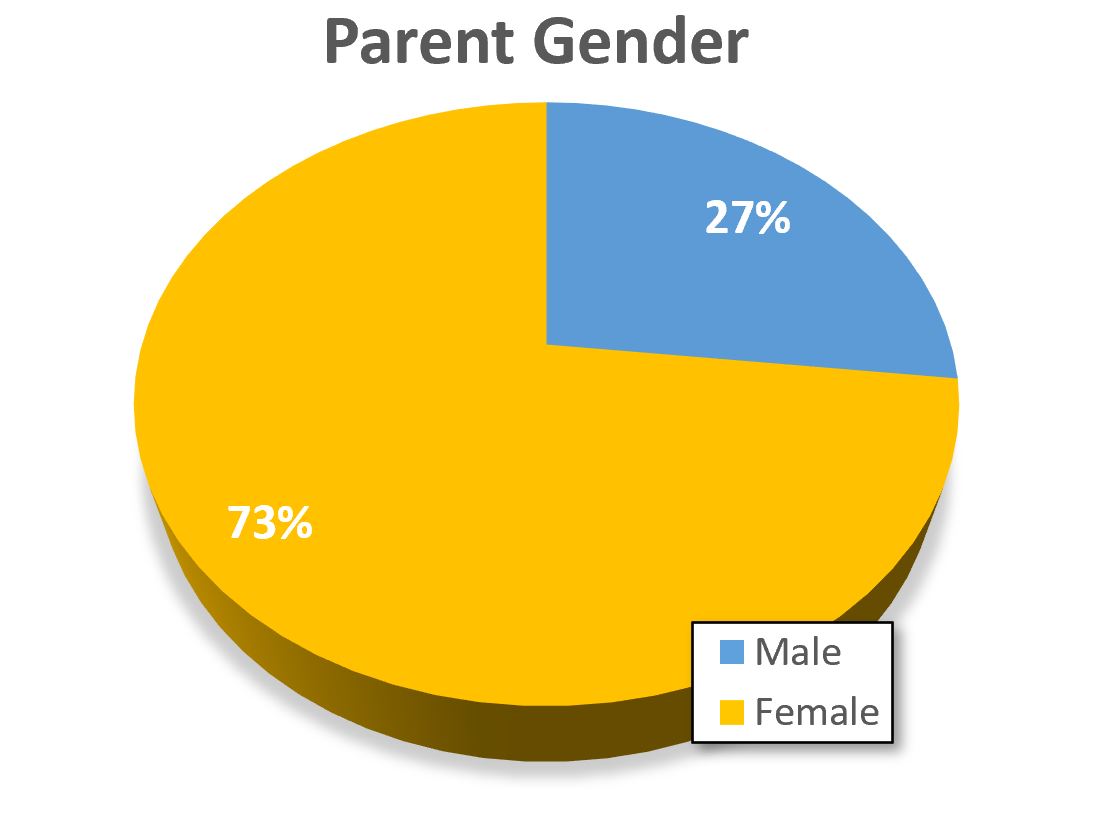
PRIMARILY MOTHERS
Although a majority of the respondents identified as female, our baseline sample has over 240 fathers as well!
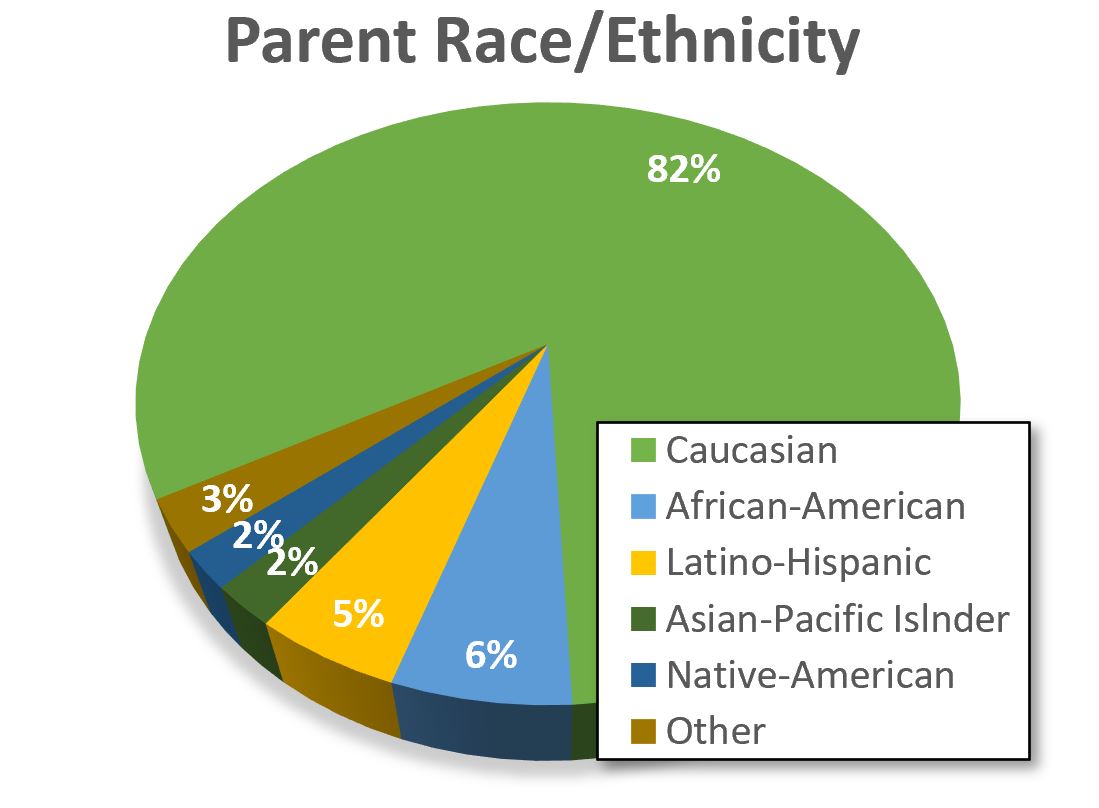
PRIMARILY WHITE
A majority of the parents identified as non-Hispanic Caucasian. However, our baseline sample has over 160 parents of other races and ethnicities.
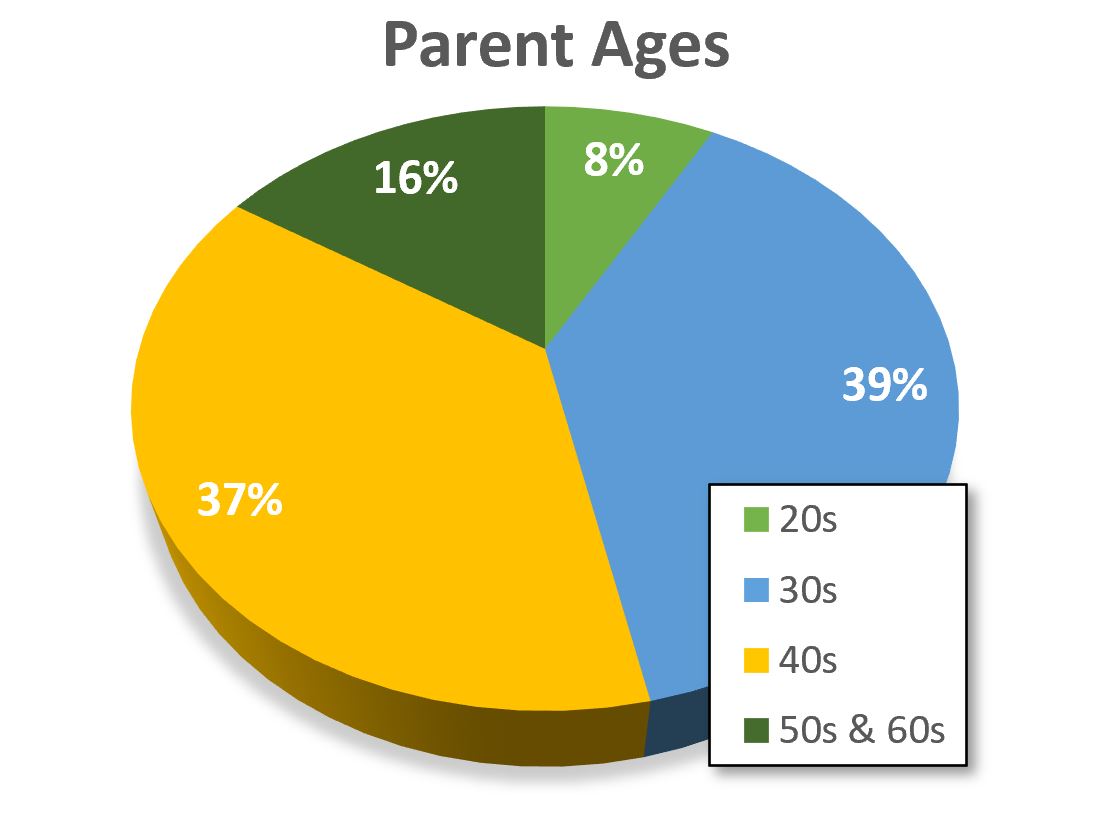
IN THEIR 30's AND 40's
Our parents ages ranged from late twenties to early sixties, capturing a broad range of experiences. Most of the parents were in their 30's and 40's.
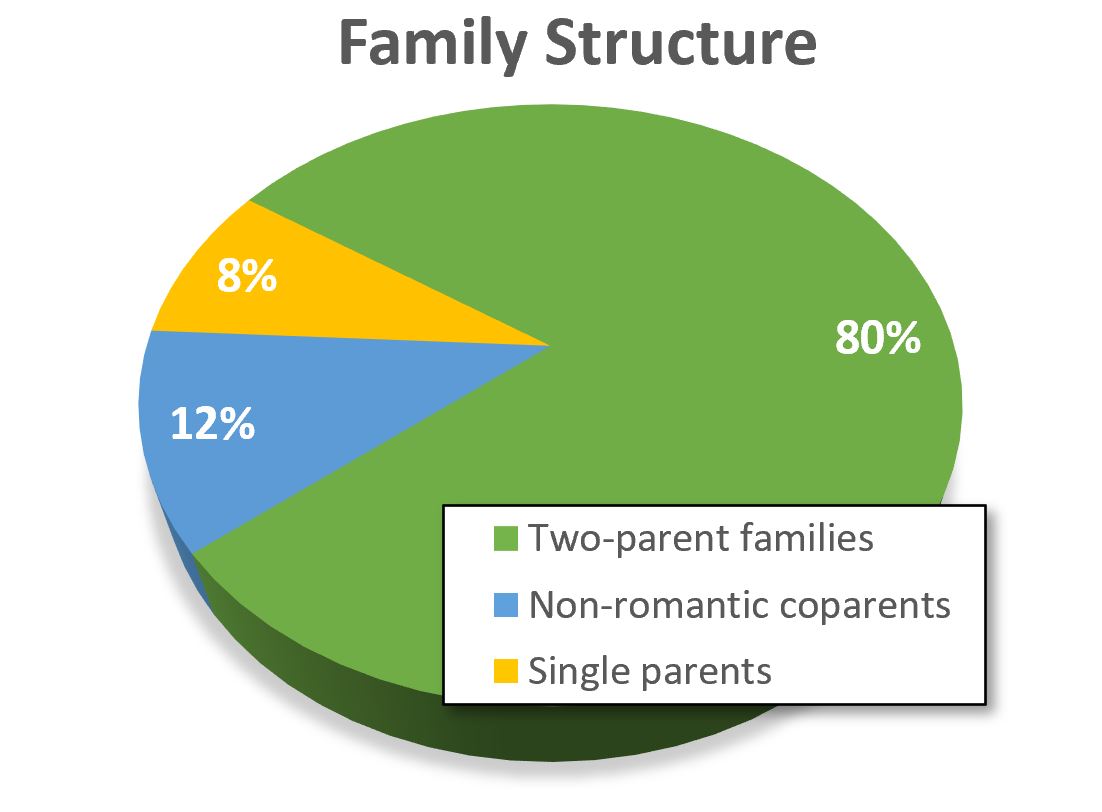
TWO-PARENT FAMILIES
A majority of our parents were from 2-parent families. However, over 180 of our parents were raising their children as single parents or with the help of another adult in the home (e.g., a parent, a relative).

MOSTLY MARRIED COUPLES
Among the parents currently in romantic relationships, a majority of them used the word "married" to describe their relationship.
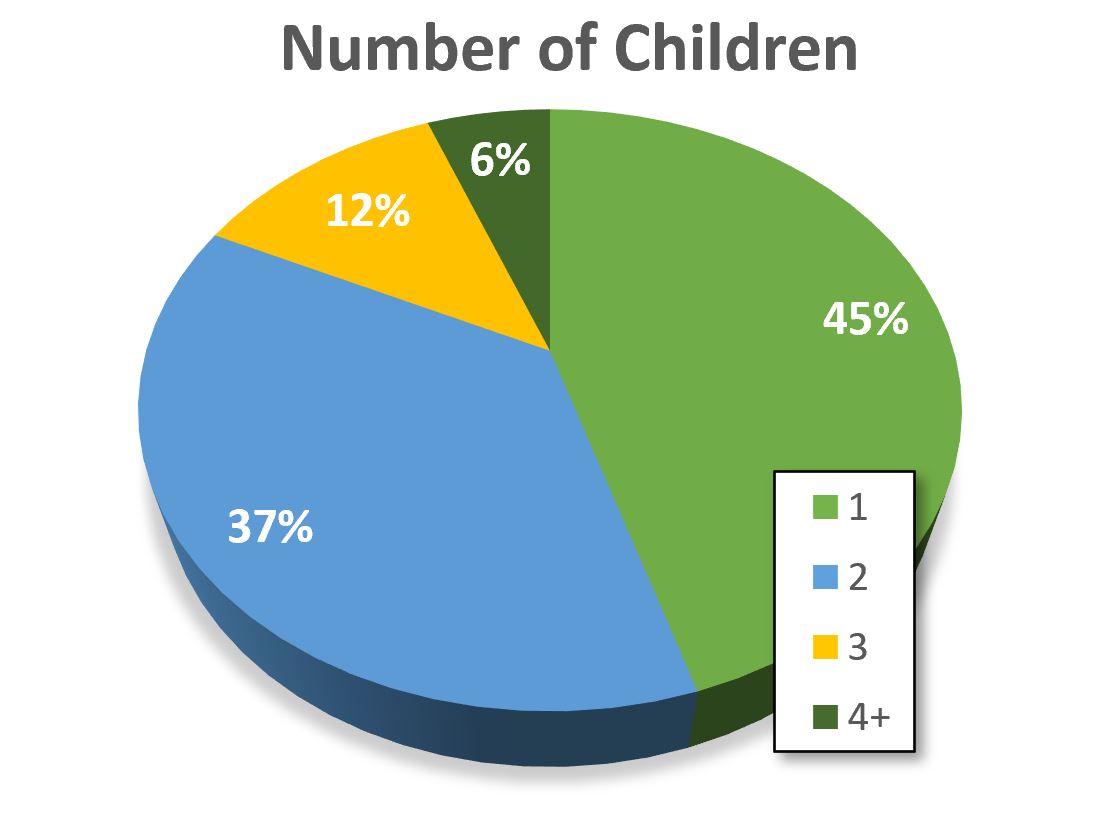
1 or 2 CHILDREN
Parents reported any where from 1 to 8 children living in their homes, but a majority of the families contained just 1 or 2 children.
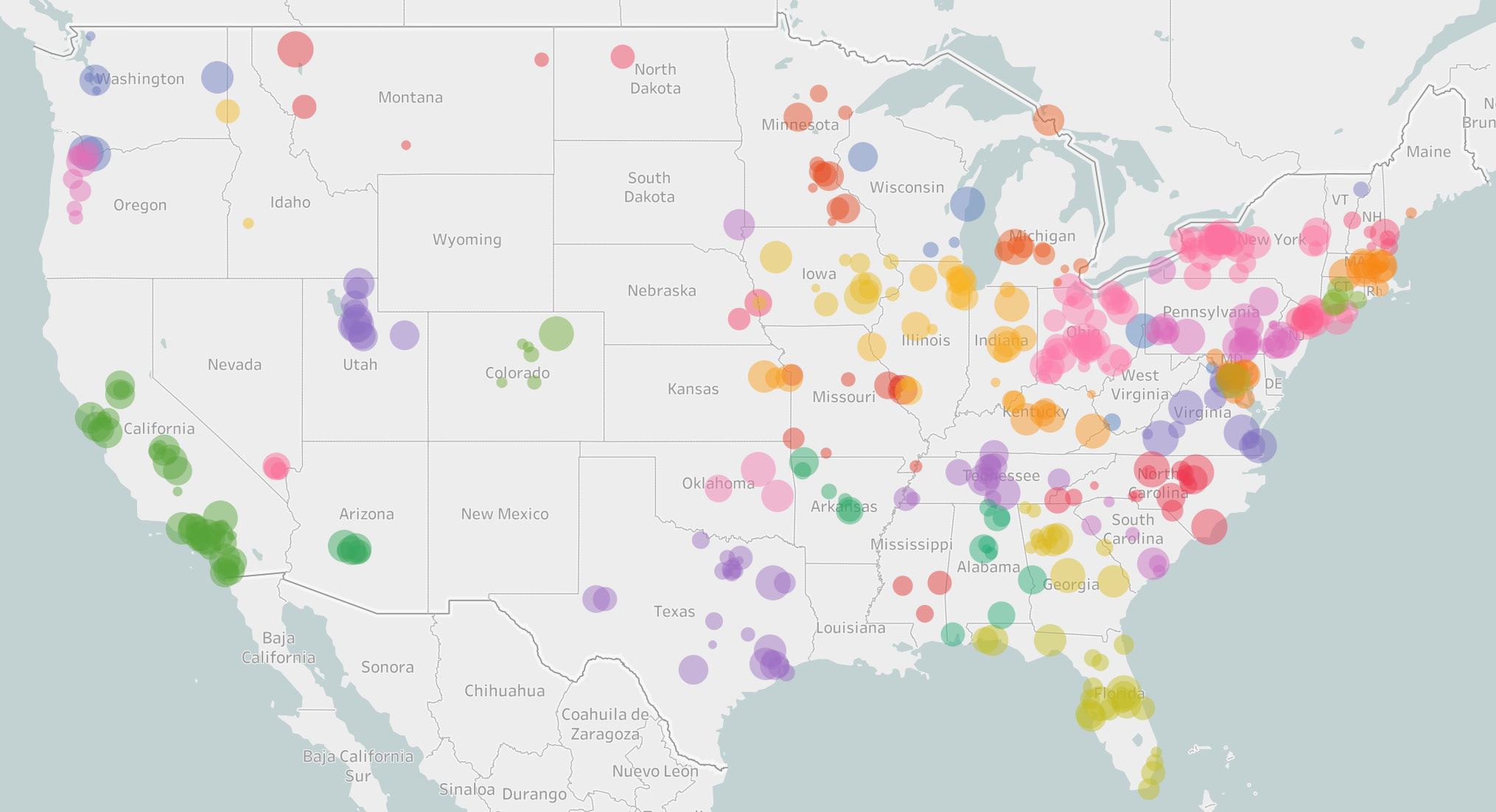
ACROSS THE UNITED STATES
Although we have some parents from Europe in the study, a majority of our first 914 parents are living across the United States.
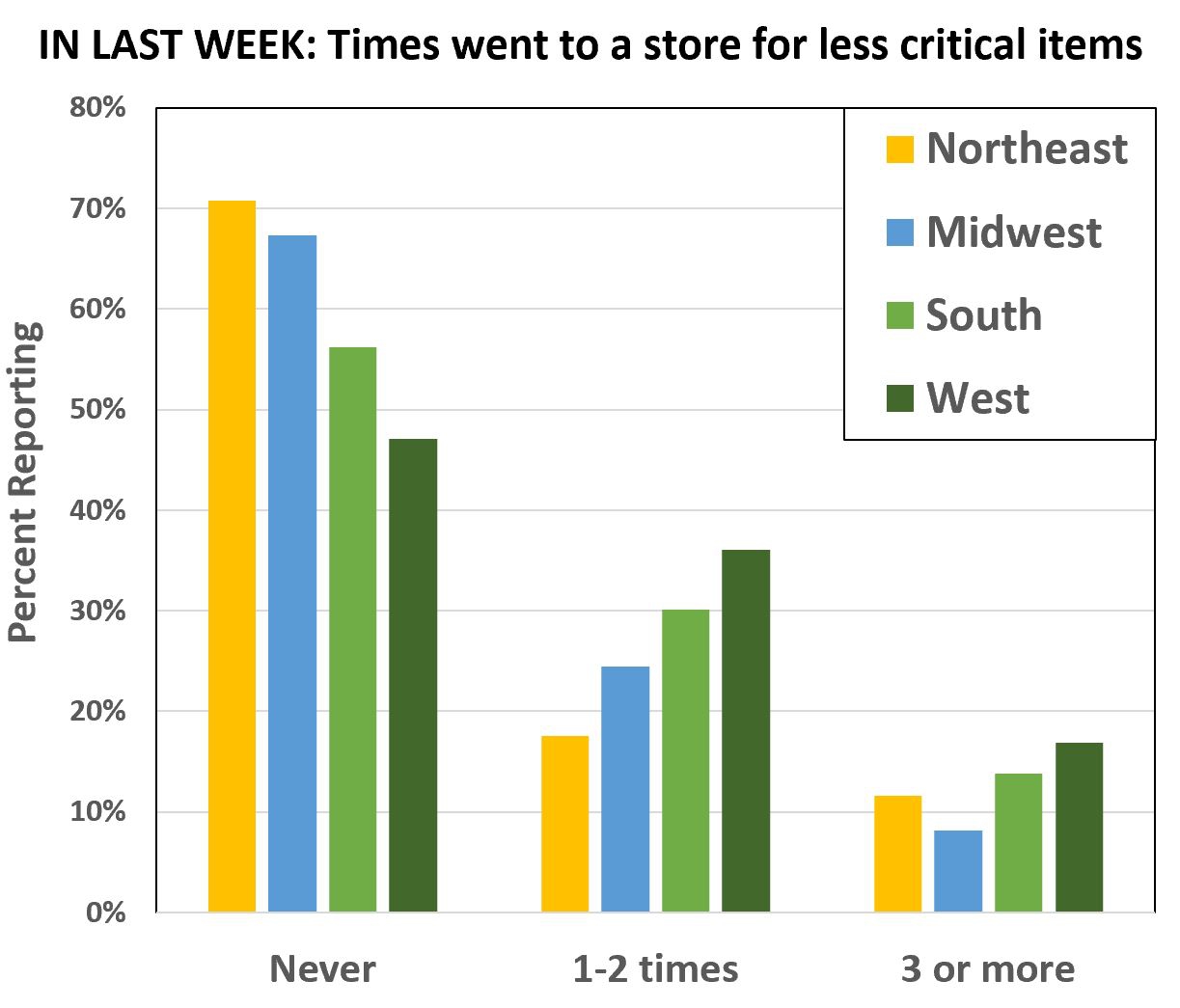
UNNECESSARY TRIPS TO THE STORE BY REGION OF THE COUNTRY
Not surprisingly, as the Northeastern part of the United States has struggled with alarmingly high rates of infection in the last few weeks, parents living in the Northeast reported the highest compliance with social distancing. This is exemplified in the responses to the item asking about the number of less critical shopping trips taken in the last week.
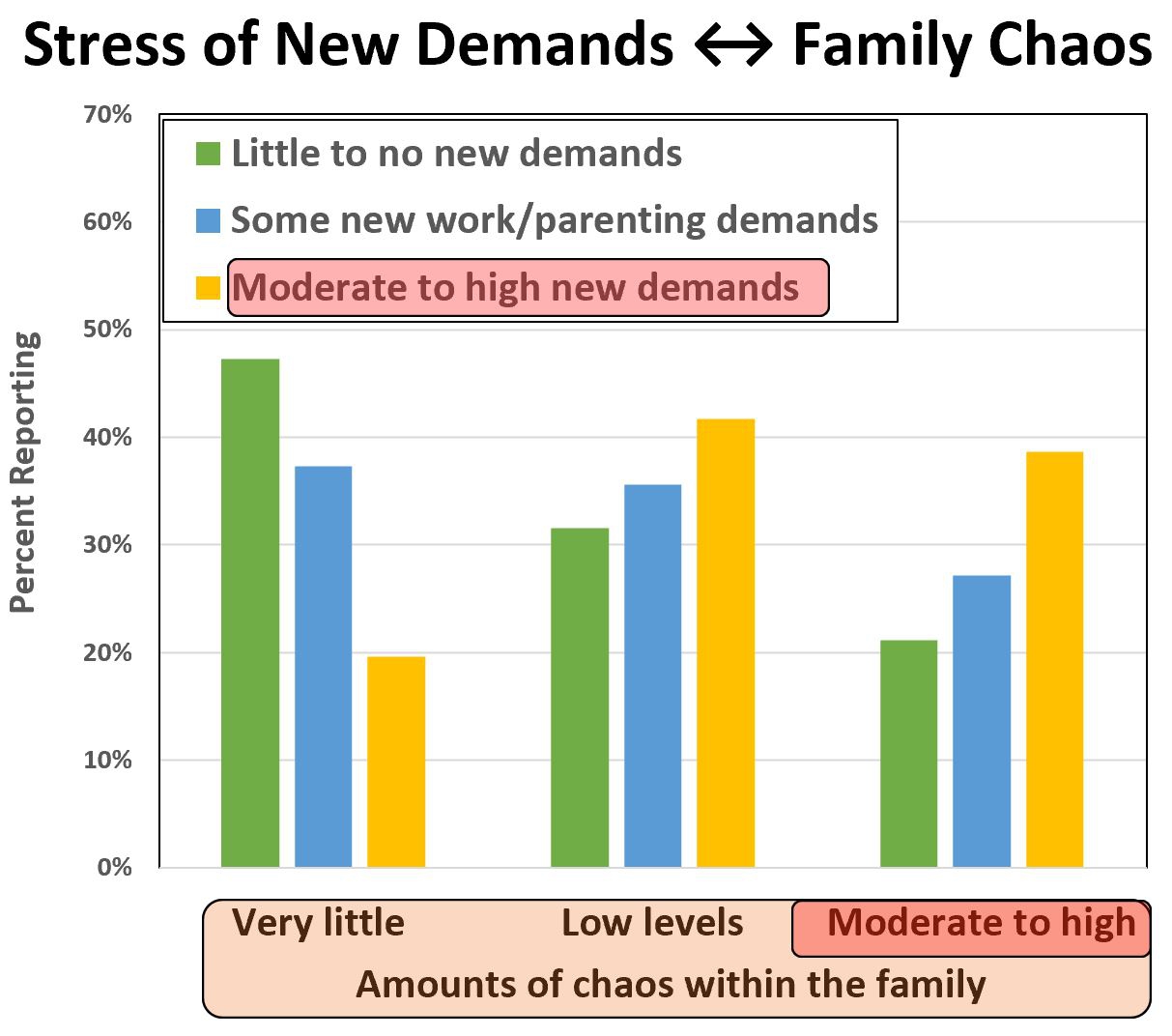
STRESS OF NEW PARENTING/WORK DEMANDS & FAMILY CHAOS
Parents experiencing a lot of stress surrounding their new roles during this pandemic (e.g., homeschooling their children, working from home) also tended to see their families as more chaotic and less tranquil.
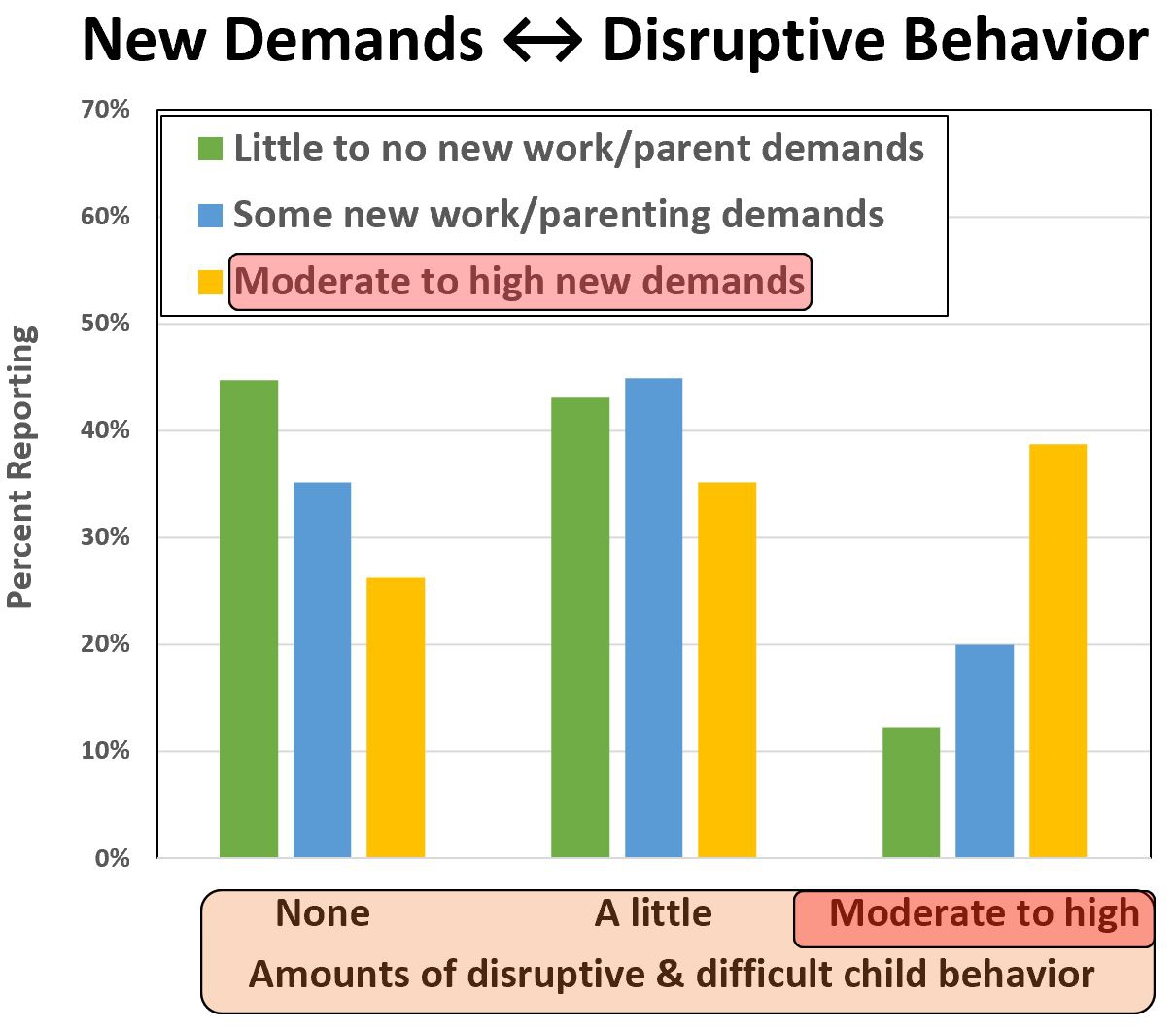
STRESS OF NEW DEMANDS & KIDS DISRUPTIVE BEHAVIOR
Parents experiencing a lot of stress surrounding their new roles during this pandemic also tended to see their children as behaving in more disruptive and aggressive ways (e.g., getting into fights, screaming, breaking things).
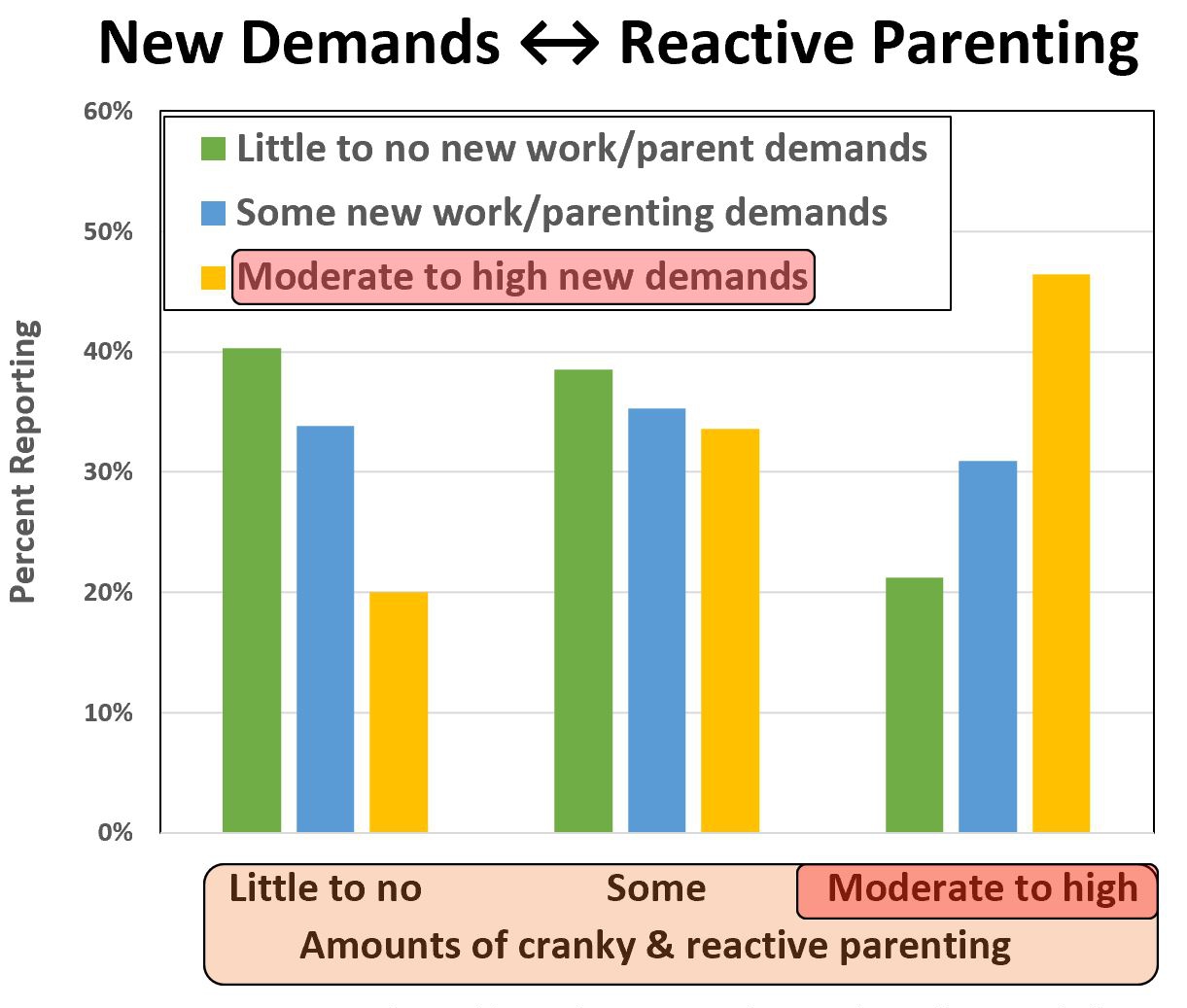
STRESS OF NEW DEMANDS & REACTIVE PARENTING
Parents experiencing a lot of stress surrounding their new roles during this pandemic also tended to lose their temper more often when parenting their kids, responding to misbehavior and conflict in a more reactive manner.
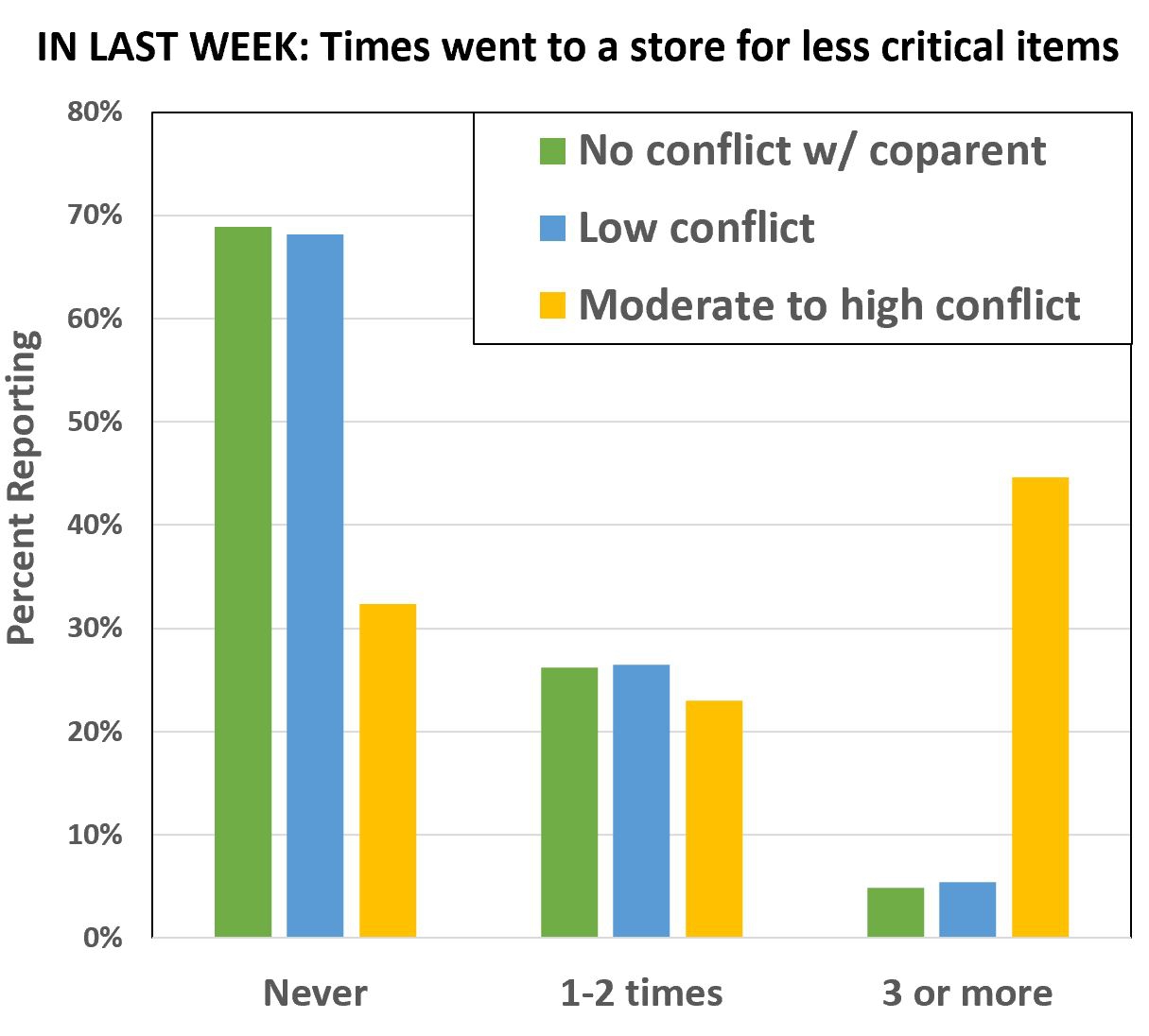
CONFLICT WITHIN THE FAMILY AND SOCIAL DISTANCING
Cranky and hostile conflict between coparents (yelling, calling each other names, insulting each other) was associated with notably lower compliance with social distancing guidelines.